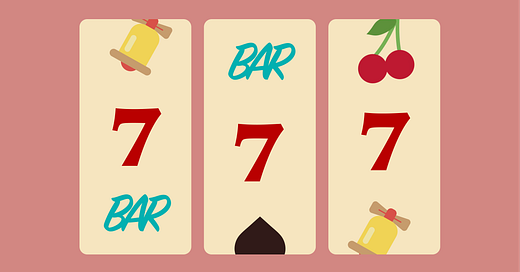You might have already noticed that social media has had a negative effect on your brain. Maybe you used to be able to read a whole book in one sitting, and now you struggle to read a single chapter without getting distracted. Or you feel like reaching out to your phone during conversations with people you care about. Or you simply feel sucked into the rabbit hole of Youtube, Reddit, or TikTok… when you would prefer to spend those hours on something else.
That is now very common. Around 40% of young adults feel at least somewhat addicted to social media. Let’s look at the two main reasons why we get so addicted to social media.
NOTE: I am using the word “addiction” quite loosely here, including any sort of problematic usage to the detriment of the user. This usage of the term “addiction” is in line with much of the research on the topic.
NOTE 2: This post is mostly based on Dr. Anna Lembke’s book Dopamine Nation, which I recommend if you want to go deeper into the topic.
1. Social media gives us dopamine hits
On average, people spent 2 hours and 27 minutes per day on social media in 2022. This corresponds to 38 full days.
All this time spent on social media changes our brains. To talk about it, we first have to get a close look at dopamine. Dopamine is a neurotransmitter, a molecule that acts as a bridge between two neurons. While usually it’s thought to be the molecule responsible for pleasure, it is more involved with motivation, and how much we want something. It is also used to measure the addictive potential of any behaviors or drugs.
Let’s say you open Instagram, see a post stimulating your brain, and get a dopamine hit. After that, you get a low and experience cravings. You scroll down. New post, dopamine hit. Then new craving. And so on.
Social media has an addictive quality that sucks you in and makes you lose your sense of time. It creates a powerful psychological addiction.

2. Our brain adapts and tends to have low dopamine
There is another way social media changes your brain that is even more pervasive. It has to do with something called neuro-adaptation, the way the brain alters itself in response to a substance or, in this case, a behavior. The brain always tries to be in homeostasis, in balance.



